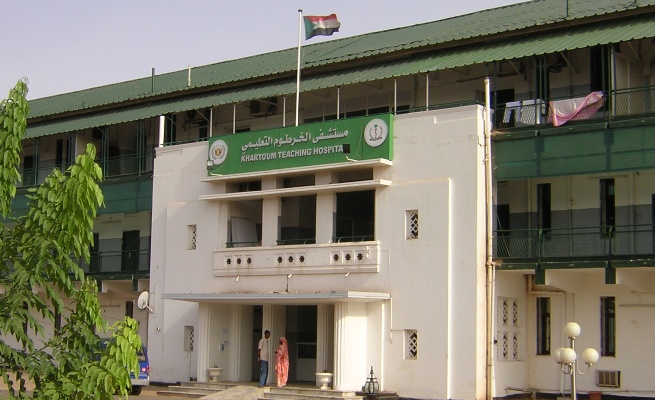Sudan: Treatment cancelled for patients of Khartoum Health Insurance Corporation

The Khartoum Teaching Hospital (File photo)
KHARTOUM –
The director of the Khartoum state Health Insurance Corporation has decided to temporarily suspend the access of patients to health institutions contracted by the corporation, because of financial problems.
In a statement on Sunday, Director Wefag El Tayeb attributed the measure to the delay of the National Health Insurance Fund in paying financial claims of the Corporation since the end of last year.
She said that the federal Ministry of Finance did not transfer the required amounts to the National Health Insurance Fund “which has led to cumulative financial indebtedness of the Health Insurance Corporation to the health institutions it contracted.
The Sudanese government is having serious problems with meeting its obligations. The country has not received any external support for its annual budget for the second year in a row, so it must rely on its own resources – which, according to former rebel leader and Finance Minister Jibril Ibrahim, for a large part consist of reportedly illegally increased taxes and levies.
The government of former PM Abdallah Hamdok, of which most members (not Ibrahim) resigned following the coup d’état on October 25 2021, would not receive external funds for its 2022 budget either. It succeeded, however, in securing at least $4,364 billion in aid from the international community, including the World Bank, for 2023. Such funds however, were frozen following the military coup.
Since the coup, exports have also decreased significantly. Turning to domestic revenue “is unrealistic given the current economic and political crisis,” said Zeinab Mohamed, an analyst at NKC African Economics, in an interview with Bloomberg on January 25. According to the analyst, with purchasing power declining and little support for military rule, tax hikes will push Sudan further into political turmoil.
Last year, economic expert Sidgi Kaballo warned of a ‘revolution of the hungry‘ if the root causes of the economic problems would not be addressed.











 and then
and then